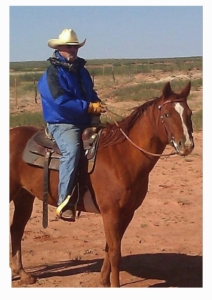Incident Commander
Incident Commander
Our new guest writer David Jensen is the owner/owner/principal consultant of Johnny Creek Consulting LLC located in New Mexico, USA. Experience includes, 20 years a consultant of Personalysis Corporation; an executive consulting firm. A senior level consultant having attained a Vice President title with the company. He has worked with multiple Fortune 100 companies in various consulting capacities and on a wide range of projects. In his role as a consultant, Jensen works with all levels of teams and individuals, including CEOs of several major organizations. He shares this experience with readers tonight in his first blog for Learning Without Scars: Incident Commander.
Prior to joining Personalysis Corporation, He worked for the US Forest Service and then joined the US Department of Labor where he was a bureau chief responsible for organizational analysis. He next served as a consultant to Martin-Marietta and then moved to Sara Lee Corporation where he was the Director of Employee Relations for the company for over 10 years.
David has taught at both Idaho State University and Boise State University.
Jensen is a graduate of Idaho State University where he holds both an undergraduate and master’s degree in psychology. His emphasis of study was organizational psychology with his master’s thesis being Proxemic, The Importance of Personal Space.
David has been a featured speaker at national conventions and seminars. His ideas on leadership, teamwork and organizational effectiveness have been well received by diverse audiences.
“ASSUMING Incident Commander (IC)”
Observations from Rural New Mexico
The dispatcher states your assigned call number and asks if you will be “assuming IC.” If the answer is yes; you are thrust into the role of the leader. You now move from the role of a volunteer firefighter to Incident Commander (IC). The moment will challenge what you think you know about leadership. It is now without question, trial by fire. There is no room for half-hearted commitment. So how does a fulltime cowboy step off their horse and step into the driver seat of the command truck. What do they need to know? How is that knowledge different from a president who is responsible for multi-national private enterprise? As it turns out, not so different. Leading a successful business requires the same basic knowledge and skill that a well trained and experienced Incident Commander brings to the fire line.
Fire training requires that an Incident Commander master five fundamental leadership activities:
- Command
- Operations
- Planning
- Logistics
- Finance.
1. Command
When you accept the position of President of the company or Incident Commander, you are accountable for the enterprise outcomes. That does not mean that all decision making is retained at the President or Incident Commander level. A notable exception is safety. Safe practices must be always priority number one of any leader. An Incident Commander trained to delegate appropriate authority and decision making to all levels of the fire line down to the individual volunteer firefighter. A hallmark of any successful enterprise is that the individual in command insures employees are engaged and their efforts are recognized. Incident Commanders trained seek opportunities to enhance self-esteem through praise and to empathize with volunteers doing what is often a thankless job.
2. Operations
The key to successful fire line operations is clear effective in-person and radio communication with the line bosses. The communications provide realistic and measurable goals for the operation and define how it is to be executed. Line bosses feedback progress against the objectives until you achieve fire containment. Successful operations within any organization are based on a system of metrics and management feedback. It is the President or Incident Commander responsibility to ensure that this operational feedback loop exists. It is the responsibility of all participants to contribute to the feedback. Every volunteer firefighter understands that it is their responsibility to question communications when they are unclear or unsafe.
3. Planning
An Incident Commander train to develop incident action plans and to conduct an after-action review that can lead to improved outcomes. On an active fire line, the objectives will be influenced by a number of factors such as weather, terrain and type of vegetation which are beyond control of the IC. It is President or Incident Commanders responsibility to insure that tactical and strategic plans developed and revised in response to changing external conditions. Learning from experience and not repeating a costly error is key to any successful enterprise.
4. Logistics
On a fire line the availability of resources on the ground and in the air will determine how the effort will accomplish the operational goals and objectives. It is the President or Incident Commander knowledge of available resources and how they might best deploy that will contribute to the success of the action plans that drives operational success. Fire containment will not move at pace without linking logistics, planning and operations together. In business, it is the President commitment that ensures that shop floor knowledge connects logistics, planning and operations.
5. Finance
The leader of an enterprise must be accountable to a stakeholder. The stakeholder may be an owner, a shareholder, or a taxpayer. Whatever form, an assessment of cost and risk is essential. On a fire line all assets are not equal. Decisions must made based on what is at risk. Structure protection is far greater value than grassland. In a business, the President must direct capital towards what offers the best return on investment. Leading a complicated and successful business is an ongoing incident without the fire and the heat! If you are on fire line of a major incident or in the hot seat of a major multi-national private enterprise, to have mastered the five fundamental leadership activities can put you on path to success.
David Jensen MS
Johnny Creek Consulting LLC (Principle)
HR/ Executive Coach
Part-Time cattle rancher
Full time volunteer firefighter

